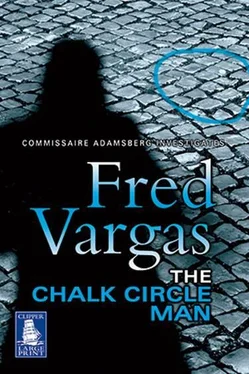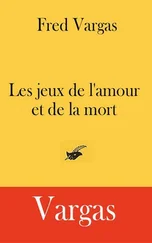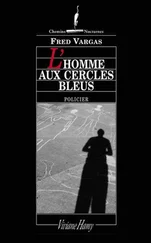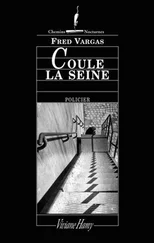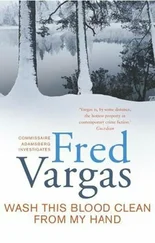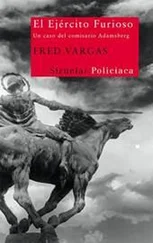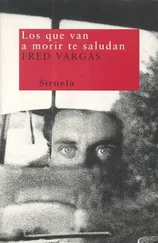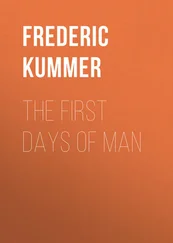So all in all, there wasn’t much to be gleaned from that, Danglard told himself. Just the usual bundle of half-truths that waste everyone’s time. The children would be disappointed. But he felt resentment towards Adamsberg for these dreary days, punctuated only on the mornings when the circles reappeared.
He had the unjustified impression that Adamsberg was exerting a malign influence on the passage of time. The police station itself seemed to be impregnated with the particular behaviour of the commissaire . Castreau was no longer fuming over trifles, and Margellon was making fewer stupid remarks – not that the former was becoming milder or the latter more intelligent, rather that it wasn’t worth their while to react so strongly all the time. On the whole – but perhaps it was just an impression generated by his own worries – there were fewer outbursts and the usual little rows about nothing were less in evidence, being replaced by a sort of nonchalant fatalism which seemed more dangerous to him. All the officers seemed to be handling the sails of the ship routinely, without showing the least concern if the vessel was momentarily becalmed when the wind dropped. Everyday police matters took their course – three muggings in the street yesterday, for instance. Adamsberg came and went, disappeared and reappeared, without this provoking either criticism or alarm.
Jean-Baptiste went to bed early that night. He even discouraged the young woman from downstairs, as gently as he could, without offending her. And yet that morning he had felt an urgent desire to see her, to distract his thoughts and help him dream of a different body. But when evening came, his only thought was to get to sleep as fast as he could, without a bedfellow, or a book, or a thought in his head.
When the telephone rang in the small hours, he knew immediately that it had come at last, the end of marking time, the crisis, and that someone had been killed. Margellon was on the line. A man had had his throat cut on the boulevard Raspail, in the quiet section leading to the Place Denfert. Margellon was on the spot with the team from the 14th arrondissement .
‘And the circle? What’s the circle like?’ asked Adamsberg.
‘Yes, there’s a circle, commissaire . Carefully drawn, as if the guy was taking his time. And the words round the edge are the same as always: “Victor, woe’s in store, what are you out here for?” That’s all I can tell you for now. I’ll wait for you here.’
‘I’m on my way. Call Danglard. Tell him to get there fast.’
‘Is it really necessary to get everyone out?’
‘Yes. That’s what I want. And stay there yourself as well.’
He had added that so as not to offend Margellon.
Adamsberg had pulled on the first pair of trousers and shirt that came to hand, as Danglard noticed, having arrived at the scene a few minutes before him. Adamsberg’s shirt buttons were done up awry, as he realised himself. While looking down at the corpse, the commissaire therefore unfastened all the buttons, then did them up again, without seeming the least troubled by the incongruous sight he offered to the local officers standing around on the boulevard Raspail. They watched him in silence. It was three-thirty a.m. As on every occasion when it looked likely that the commissaire would be the object of critical comment, Danglard had an urge to defend him against allcomers. But in this case, there was nothing he could do.
So Adamsberg calmly finished buttoning up his shirt, while looking at a body which appeared under the arc lamps even more mutilated than that of Madeleine Châtelain. The throat had been so deeply slashed that the man’s head was almost back to front.
Danglard, who was feeling as nauseated as when he had seen Madeleine Châtelain’s body, tried not to look. His own throat was his most sensitive spot. The idea of wearing a scarf upset him as if it might strangle him. He didn’t like shaving under his chin, either. So he looked the other way, towards the dead man’s feet, one of which was pointing to the word ‘Victor’ and the other towards the word ‘woe’. The shoes were classic and well-polished. Danglard’s gaze moved up the long body, examining the cut of the grey flannel suit and the ceremonial presence of a waistcoat. An elderly doctor, he guessed.
Adamsberg was scrutinising the corpse from the other side, looking at the old man’s throat. The commissaire ‘s mouth was twisted in a grimace of disgust for the hand that had slashed that neck. He was thinking of the stupid drooling dog and nothing else. His colleague from the 14th arrondissement approached with outstretched hand.
‘ Commissaire Louviers. We haven’t met before, Adamsberg. Nasty circumstances.’
‘Yes.’
‘I thought it best to alert your sector straight away,’ Louviers insisted.
‘Thank you. Who is this gentleman?’ asked Adamsberg.
‘I think he was probably a retired doctor. At any rate he was carrying a medical bag with him. Seventy-two years old. Gérard Pontieux, born in the Indre département , height 1 metre 79, and that’s all we can say at present, just what’s on his ID card.’
‘We couldn’t have prevented it,’ said Adamsberg, shaking his head. ‘We just couldn’t. A second murder was predictable, but not preventable. All the policemen in Paris wouldn’t have been enough to stop it.’
‘I know what you’re thinking,’ said Louviers. ‘It’s your case after that Châtelain murder in your sector, and the killer hasn’t been caught yet. He’s struck again. Hard to take, isn’t it?’
It was true: that was more or less what Adamsberg had been thinking. He had known that this new murder would happen. But not for a moment had he hoped that he could do anything about it. There are stages in an investigation when all you can do is wait for the irreparable to happen if you are to make any progress. Adamsberg could not feel any guilt. But he felt sorry for this harmless well-dressed elderly man stretched out on the pavement, who had had to pay the price for his own powerlessness.
By dawn, the corpse had been taken away in a police van. Conti had come to take some photographs in the morning light, replacing the photographer from the 14th. Adamsberg, Danglard, Louviers and Margellon all met round a table in the Café Ruthène, which had just opened its shutters.
Adamsberg remained silent, disconcerting his bulky colleague from the 14th, who was still taking in the hooded eyes, the lop-sided mouth and the dishevelled hair.
‘No point asking the café owners this time,’ Danglard remarked. ‘This one and the Café des Arts close too early, before ten. The chalk circle man knows where to find a deserted spot. It wasn’t far from here that he put the dead cat in a circle in the rue Froidevaux, by the Montparnasse cemetery.’
‘That’s in our sector,’ Louviers reacted. ‘You didn’t tell us.’
‘There wasn’t a murder then, or even an incident,’ Danglard replied. ‘We just had a look out of curiosity. Actually, you’re not quite right, because it was one of your men who told us about it in the first place.’
‘Ah, that’s all right then,’ said Louviers, relieved not to have been kept out of the loop.
‘Like last time,’ Adamsberg was saying from the end of the table, ‘this victim is entirely inside the circle. You can’t tell whether the circle man was responsible or whether his circle’s just been used. Always this ambiguity. Very clever.’
‘So?’ asked Louviers.
‘So nothing. The doctor thinks it happened at about one a.m. A bit late, to my mind,’ he concluded after another pause.
‘What do you mean?’ asked Louviers, who wasn’t easily discouraged.
Читать дальше
